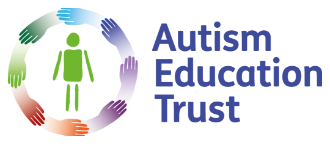Positive Behaviour Support
ASC and Positive Behaviour Support
Individuals with Autism Spectrum Condition can use behaviours of concern to get their needs met and this may be challenging for them and their families. Positive Behaviour Support (PBS) is a values-based approach, using the science of behaviour to support these needs. The new PBS team work with staff and pupils to increase quality of life, and engagement in learning, so that behaviours of concern may reduce as a by-product.
How we use PBS in school
Function based assessment
All behaviours of concern are assessed for the function, to discover the reason behind the behaviour occurring. This is found by looking at data, speaking with staff and families and observing the pupil. Behaviour recommendations will then include interventions for meeting the pupil’s need and teaching replacement skills.
Quality of life
Quality of life measures are embedded across the school and the curriculum. Any pupils that are referred to the PBS team will have a formal or informal quality of life assessment around Positive Emotion, Engagement, Relationships, Meaningful experience and Achievement. The initial stages of the PBS process commonly involves assessing a pupil’s interests and expanding their meaningful and enjoyable experiences in school.
Proactive strategies
PBS is a proactive and preventative method for supporting behaviours of concern, where staff are encouraged to meet a pupils need before the desire for a behaviour of concern may arise. These strategies are induvial to each pupil and classroom, based on their needs, likes and dislikes. This will often include quality of life enhancements and skill development.
Least restrictive practice
PBS focuses on protecting human rights and enables the culture change necessary in organisations to reduce the use of restrictions. We promote pupil inclusion, autonomy and choice. Staff use Proactive strategies and de-escalation techniques to meet the students’ needs, which reduces the need for restrictions, such as physical intervention.
Person centred approaches
The students’ best interest is at the core of everything we do and each pupil’s PBS program is individualised to meet their needs. All targets and recommendations are centred around what is important to the student, and where possible the students are involved in the planning.
Trauma informed care
All staff deliver behaviour strategies with trauma informed care, being mindful of students’ potential trauma history and focusing on building trust before new skills are taught.
Skill development
All behaviour support plans and functional behaviour assessments have a focus on teaching functional skills to meet pupils’ needs. Staff support students to increase communication, increase independence and achieve in class.

